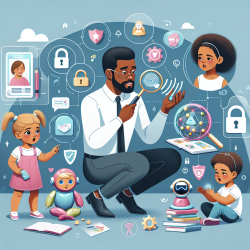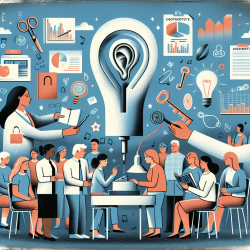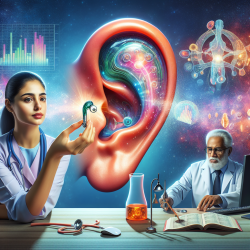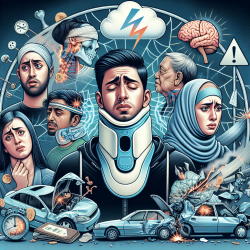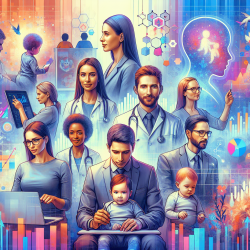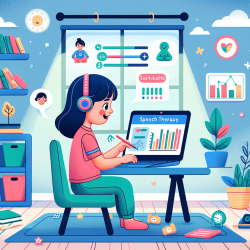In the rapidly evolving landscape of artificial intelligence (AI), smart connected toys (SCTs) have emerged as a significant presence in children's lives. These toys, which form part of the Internet of Toys (IoToys), offer new ways for children to interact, learn, and play. However, as practitioners in speech language pathology and related fields, it is crucial to recognize the potential side effects of these technologies and prioritize children's rights and well-being.
The Impact of Smart Connected Toys
Smart connected toys are equipped with sensors, data processing capacities, and connectivity, allowing them to interact with children in dynamic ways. While these toys can enhance playtime experiences and educational outcomes, they also pose risks that must be carefully managed. According to the research article "Toy story or children story? Putting children and their rights at the forefront of the artificial intelligence revolution," SCTs can lead to unforeseen technical, individual, and societal side effects.
Technical Side Effects
At the technical level, SCTs can present security vulnerabilities, lack transparency, and perpetuate biases. For instance, compromised toys can be manipulated to display disturbing content or collect sensitive data without proper consent. Practitioners must advocate for robust security measures and transparent data practices to protect children's privacy and safety.
Individual Side Effects
On an individual level, children may develop dependencies on these toys, leading to social isolation and overtrust. The anthropomorphic design of SCTs can cause children to form emotional bonds, making them vulnerable to manipulation. Practitioners should encourage balanced interactions and monitor children's engagement with SCTs to mitigate these risks.
Societal Side Effects
Societal implications include the normalization of surveillance and the exacerbation of digital inequalities. As SCTs collect and analyze data, they contribute to a culture of surveillance that can affect children's development and privacy. Additionally, access to high-quality SCTs may be limited by socioeconomic factors, widening the digital divide. Practitioners must advocate for equitable access to technology and promote digital literacy among children and parents.
Implementing Best Practices
To address these challenges, practitioners should consider the following strategies:
- Advocate for Children's Rights: Ensure that the best interest of the child is a primary consideration in the development and use of SCTs. Conduct child rights impact assessments to identify and mitigate potential harms.
- Promote Transparency and Security: Support the implementation of transparent data practices and robust security measures. Educate parents and children about the importance of privacy and how to protect their data.
- Encourage Balanced Interactions: Monitor children's engagement with SCTs and promote a healthy balance between digital and real-world interactions. Encourage activities that foster social skills and emotional development.
- Advocate for Equitable Access: Work towards reducing digital inequalities by ensuring that all children have access to high-quality SCTs and digital literacy programs.
Encouraging Further Research
The research by Fosch-Villaronga et al. (2021) underscores the need for ongoing investigation into the impact of SCTs on children. Practitioners should stay informed about the latest findings and advocate for policies that prioritize children's rights in the AI revolution.To read the original research paper, please follow this link:
Toy story or children story? Putting children and their rights at the forefront of the artificial intelligence revolution.
